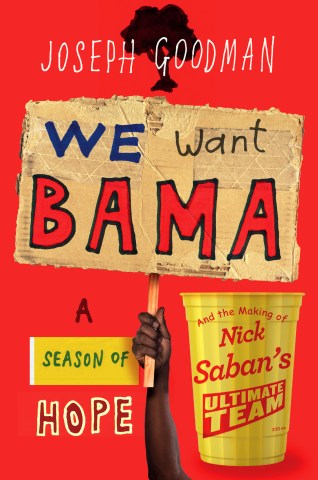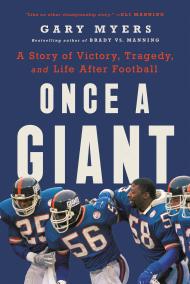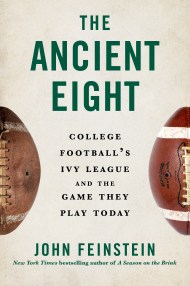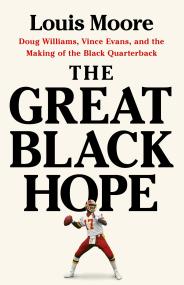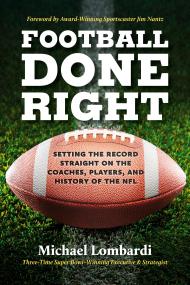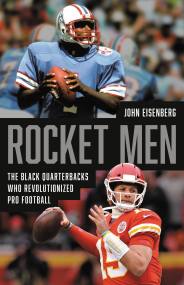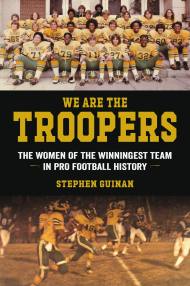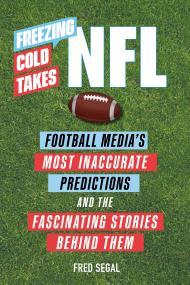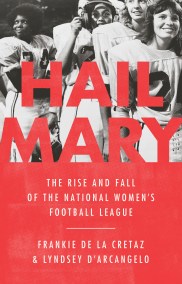INTRODUCTION
The yellowhammer is a bird of striking savagery.
That’s an ornithological salute to a subspecies of woodpecker that eats ants and then rubs the formic acid from those same swarming, hateful devils all over its feathers to protect it from the world’s bullshit. Yellowhammers are resourceful soldiers in the fight against the universe, in other words. Their armor is the bodily fluid of their breakfast.
This book was inspired by one of the most culturally significant college football teams that has ever played the game, and understanding why requires an appreciation for what it represented in the Foul and Venomous Year of Unholy Universal Biting Bullshit that was 2020. That bastard of a year was like a horde of zombie fire ants sent by Lucifer himself to carry us all down into the tunnels of a sadistic and jealous hell. It was a year that none of us will ever forget, and one that we’re all duty bound by acid burns to pass on with stories and wisdom so that future generations may somehow avoid our mistakes. In that year, the University of Alabama Football Crimson Tide of the Yellowhammer State defeated the universe with resourcefulness, achieved historic perfection during the COVID‑19 pandemic, and, most poetically, leveraged its power and influence born of Southern pride to push back against the country’s hateful legacy of racism that Donald Trump exploited to divide America.
Was Alabama in 2020 the greatest team of all time? It’s such an overvalued and played-out question in an era of media oversaturation. Maybe so, but who’s to say? The only thing we know for certain is that we should all dry heave at the phrase “media over-saturation,” and then seek out a shower, drink some bourbon, turn off our phones, take a walk in the woods, and also maybe burn one all the way down to our lips to cleanse our senses and our souls. There have been some great football teams through the years, and they all deserve respect. Here’s what we know for sure. They all would have been appreciative of what this Alabama team represented, and proud of what it accomplished under the most difficult set of circumstances ever thrown at a national champion.
Would Miami’s all-time collection of talent have opted out in 2001? Did USC in 2004 have to worry about navigating a plague? Did Hall of Fame coach Tom Osborne test positive for a potentially deadly virus the week Nebraska played Colorado in 1995? LSU quarterback Joe Burrow didn’t win 11 games against SEC opponents in 2019. Maybe he could have, but he didn’t. Quarterback Mac Jones and Alabama did in 2020, and a team might never accomplish that feat again.
Alabama in 2020 captured something special that moved it beyond the conversation of best ever, and into the place reserved for most important of all time.
With a star running back from Northern California who idolized Colin Kaepernick and Megan Rapinoe, a former child model from Florida at quarterback, a down-home country karate black belt Eagle Scout at center, a brilliant artist from L.A. at offensive tackle, and an overachieving, majestic receiver from small-town Louisiana, Alabama football in 2020 was a picture of what America can be when it comes together under the vision of strong leadership.
(And, by the way, when people from the Deep South say “L.A.,” they don’t mean Los Angeles. They mean Lower Alabama.)
But we all love the real L.A. down here among the dogwoods, too. That’s where some really great future defensive end who runs a 4.6 in the 40-yard dash and has a 39-inch vertical jump is going to one day test his 6-foot-4, 265-pound frame against America’s best. He wanted to go to Alabama, but Saban got the kid who was an inch taller and a tenth of a second faster.
That five-star recruit, who beat out the guy from the real L.A., had to wait four real and whole years to start a single game, but then won a natty, earned two degrees, and went in the first round of the NFL Draft.
Alabama, as they like to say inside the Mal M. Moore Athletic Facility until everyone believes it like some blood code, just “isn’t for everyone.” Those three perfect words make competitive people demand it even more, and have given us another turn of phrase that has come to define the pursuit of archetypal perfection. Everyone wants Bama. They want Bama. She wants Bama. He wants Bama. Y’all definitely want some Bama. Through a decade of dominance, “We Want Bama” became America’s college football battle cry, but then it transformed into America’s meme that represented testing yourself against the best in every walk of life. In the challenging year of 2020, “We Want Bama” meant something else for people who still believe in things like a new hope. Truly working together still has great power in this country, and, friends, Alabama set out to show everyone what that meant with cold fists of fiery rage.
Coach Nick Saban said it best when he called 2020 Alabama “the ultimate team,” and those players cemented their coach as his sport’s best to ever do it. Saban would later call his group in 2020 “the best team.” For a coach who loathes reflection on past accomplishments, his pull to look back and celebrate that team again and again says it all. For Saban, it was a hellish and beautiful ride to earn the undisputed title of greatest of all time. He has the seven rings now to prove it, the staying power to back it all up.
Because here’s the thing about Saban: His rare affliction for a greater standard goes far beyond football now. A year like no other also framed him as the country’s greatest living leader. He passed former Alabama coaching legend Paul “Bear” Bryant for the most national championships in college football history, but before the historic seventh of his career, Saban defended what was right when the hour of truth demanded it. He chose to speak out against the rekindled politics of white supremacy embroiled so deeply in places like Alabama that they even use woodland creatures like the yellowhammer as metaphorical Confederate statues.
______________
History will remember what Saban represented in 2020 long after those who are spiteful of his greatness and courage melt away like trollish gremlins in the sun. Saban’s call to respect Black lives spoke to people enthralled by Trumpism. “Until I listen with an open heart and mind, I can’t understand his experience and his pain,” he said in a video produced by Alabama athletics in 2020’s summer of protest against white supremacy, racial injustice, and police brutality. His calming refrain was a universal message we’ve heard before. In another time, in another wicked world, in a book about a different kind of bird in Alabama, it was Atticus Finch who said, “If you can learn a simple trick, Scout, you’ll get along a lot better with all kinds of folks. You never really understand a person until you consider things from his point of view . . . until you climb into his skin and walk around in it.”
History will remember 2020 as the year Trump pulled the sports world into his toxic underworld like he did with everything else, but the truth of it all is that when America needed real leaders in the face of so much hate, the sports world answered the call and fought back for the soul of the country. LeBron James, long an activist for civil rights, was the leader of America’s team, a collection of athletes from all sports who protested together. For many, though, it paid to be silent. In Alabama, one former college football coach, Tommy Tuberville, called Trump “sent by God” to save America. It bought him an election to the U.S. Senate. Remember that, too, about the division bells of 2020 to fully understand the power of college football in the South. Under that backdrop, Saban’s “ultimate team” from Alabama showed what people can accomplish when they fight together for a just cause in the name of unity. To underscore the importance of their union and its message, Alabama then went out and kicked the ever-living hell out of everybody. They could not lose, and they did not lose.
What makes the “ultimate team”?
Alabama stood for strength and toughness by wrecking an unprecedented schedule in the ultra-competitive Southeastern Conference. It stood for brotherhood by freely committing to a season many will say only happened to bail out a system that exploits unpaid athletes. Most important, though, the team and their celebrated coach stood in the schoolhouse door made infamous by a populist bigot who championed white supremacy. In 1963, Alabama governor George Wallace used the forced desegregation of the University of Alabama to launch himself into the national consciousness and pour gas upon a country on fire.
“Segregation now, segregation tomorrow, segregation forever,” Wallace said in an inauguration speech that invoked “Jefferson Davis,” the “Cradle of the Confederacy,” and “this very Heart of the Great Anglo-Saxon Southland.” A few months later, he stood in front of Alabama’s Foster Auditorium in defiance of federal law. Really, he was just whistling Dixie to generations of white Southerners who saw the civil rights movement as a political, social, and economic threat and were happy to vilify Black students who were “fighting” for nothing more than equality.
George Wallace, a political moderate at the beginning of his career, turned hard right to win his first election. He was backed by the Ku Klux Klan and was officially endorsed by the Klan’s favorite son, Birmingham commissioner of public safety Bull Connor. By allowing Wallace to grandstand in front of Foster Auditorium and demonize the state’s Black population as the enemy of white supremacy, the University of Alabama let all of its strength and power be wielded as a tool to further divide the state and embolden the Klan’s use of police-aided domestic terrorism. This is the “Alabama” that much of the world still sees, and the Alabama that haunts the entire state even today.
The sum force of Alabama’s fascinating culture, and its artful beauty and intense pain produced in equal measure, was built around a pyramid of white supremacy dating back to the failed end of post–Civil War Reconstruction. It is easy to see when viewed from afar, but up close, the pyramid, now covered with dirt and kudzu and privet, just looks like a natural part of the topography segregating neighborhoods and schools. It is not natural. It was engineered by the hatred of white men for Black, and then built with laws and law enforcement. First came the fraudulent state constitution of 1901, then Jim Crow laws, and then new municipalities and school districts throughout the state. George Wallace’s 1963 “stand in the schoolhouse door” was actually just another speck of dirt in the state’s Mound of Unholy Biting Fire Ant-ed Bullshit.
In the summer of 2020, the Alabama football team dug its cleats into that scratch of venomous earth in front of Foster Auditorium and flexed its power during a revolutionary summer of protests across the country. With America’s professional athletes rallying to make their own stand against police violence, the most powerful entity in modern-day Alabama joined the cause and players used their voices to create a conversation to last long after the historic 2020 football season. Speaking as one, and with their famous coach in tow, Alabama football players asked how the state could be strengthened with the same values and blending of different voices that made their team the best in the country. They called for an acknowledgment of systemic racism that pulls people apart and the devastating instruments of that system: over-policing, profiling, and their inevitable upshot, police brutality.
These are not easy words, nor should they be. It’s easier just to call something fake news, and much more satisfying to ignore everything and retreat to corners of the internet with guys like 2020’s Opportunist of the Year, Clay Travis. A popular voice for expressing the mythos of Southern white men who feel attacked by popular culture for simply being Southern white men, Travis, a talented communicator with a law degree from Vanderbilt, is a commentator for Fox Sports and the operator of his own web- site, Outkick.com. Like many members of the media, he cashed in during a bitter presidential election year featuring an incumbent whose playbook was about as obvious as his painted-on tan: divide and conquer. The sports world, for decades one of America’s great unifiers, was not off-limits for Trump. Throughout his presidency he labeled outspoken Black athletes as the enemy, and guys like Travis just went along for the ride. He even sold T-shirts on his website featuring LeBron James as a communist and others with catchy slogans like “Defund the Media” and “60 Minutes of lies.” It’s an old grift. Southern sports commentators have always found success playing the contrarian’s victimhood song. The verses in 2020 were:
- 1. Racism isn’t the Talking about racism is the problem.
- 2. The outside agitators and “media” are to blame.
- 3. Sports journalists worried about COVID-19 obviously hate sports and want all sports to die.
- 4. Look how tough we are if we refuse to listen to people hurting.
- 5. I love Morgan
There will be no servicing of political narratives here to sell you T-shirts. We’ll figure out other ways to sell swag. The 2020 football season didn’t happen in a political vacuum, and everything that happens in this world is connected. The uncomfortable corners of the internet cannot be ignored in the search for truth in Alabama and the Deep South. Here is a light in the dark to guide the way: The South is a place of perpetuating tragedies, but it’s also beautiful and important in ways no other region of the country could ever be. I’m not talking about the food and the bourbon and the Southern hospitality either. People in the South care, and the true potential of a country united is hidden down there in those pine trees.
On Saturdays in the fall, when the summer’s humidity finally breaks and the fire ants start planning their retreat, a portrait of what really makes America great is celebrated by everyone in the South. It’s not some misty, romantic phantasma about mossy oaks, Solo cup tailgating with chandeliers and seersucker shorts. This isn’t some storybook simpleton Disney movie like Remember the Titans either. Yes, Remember the Titans is great because it teaches an important lesson, but college football in the South in the early decades of the third millennium of recorded Christian history is a window into the heart of America because it’s a savage desire for dominance at all costs.
And there is so much money to be made by a university whose alternative fight song is about yellowhammers.
The maniacal pursuit of college football perfection is an American drug, and people pay thousands and thousands of dollars every year to be a part of that high. In that world, there is not a more American place than Alabama. In “Alabama the Beautiful,” it is football at all costs all of the damn time. Even during a pan- demic. The best players from around the country (and one from Canada who will clean knock your teeth out) devoted their lives to one another, what they believed in, and the love of football at the University of Alabama in 2020.
And for a maniacal coach who controls everything in his bubble, a pandemic isn’t a crisis. It’s an opportunity to find every advantage possible.
It’s your choice to either hate that or love it, but know that everyone in Alabama—and for that matter, everyone in the South—regardless of their political affiliation or philosophical trappings or, more important, college football team loyalty, understands the game and loves it for how unbelievably unifying it is in its craziness.
At least they tested college players and coaches for COVID-19 multiple times weekly beginning in the summer of 2020. Would the players have been safer at home? Doubtful. High school athletic associations in Alabama and other states went full-on reckless in 2020 and played football games without testing players even when many of those players’ physical high schools were closed and classrooms were virtual.
Yes, we are a football-mad nation, and the politics of football in an election year cannot be discounted either.
When conferences around the country were canceling college football in August 2020, pretty much everyone in the South understood that the game was going to be played by the schools in the SEC. The conference planned for it all along and didn’t blink when the Big Ten and Pac-12 announced fall football was a wrap because of “new research” linking the coronavirus to cardio-myopathy. In 2020, those conferences tried to act elite like they always do, but the ironic thing about their rush to force the hands of the SEC, Big 12, and ACC was that Trump used it as political leverage. The Big Ten reversed course after that and looked like chumps. The Pac-12, of course, followed like some idiot side-kick from a cartoon. SEC commissioner Greg Sankey was the guy credited with saving the season, but the truth is that college football was simply too big to fail.
Someone had to pay Saban’s 2020 salary of $9.1 million (before the bonuses, of course).
He’s worth every penny, by the way, and the reason is not because of winning so many football games, but rather the enormous wealth all that winning has brought the University of Alabama in student enrollment, alumni donations, and national clout.
Across the country, but especially in the SEC, selling the college experience is tied directly to football. No one has done that better than the University of Alabama since it plucked Saban and Mrs. Terry away from the Miami Dolphins. The University of Alabama’s student population grew from 25,580 in Saban’s first year in Tuscaloosa (2007) to 38,103 in 2018. That’s so much damn cornbread for a poor Southern state.
The “Saban Effect” is well known, and takes its name from the “Flutie Effect” after Boston College’s student applications spiked 30 percent in the year following quarterback Doug Flutie’s Hail Mary against Miami in 1984. Look inside Alabama’s enrollment numbers and there is a more revealing trend for why football had to be played in 2020. Since 2011, out-of-state students at Alabama have outnumbered in-state students. From 2009 to 2015, according to one report, in-state enrollment for incoming freshmen declined from 3,103 to 2,508 while out-of-state enrollment for that group jumped from 2,013 to 4,706. In 2018, out-of-state enrollment made up 58.1 percent of the student body.
They weren’t there for the degrees in math and science. Rich kids from Texas, New Jersey, Georgia, and Florida were paying double tuition for the football. Happens everywhere, but no place has more tied to football than Alabama. It’s a national brand for a reason, and the reason is that Southern pride demands it, and it’s stitched into Alabama’s culture and ethos of rebellion all the way down to the egregious exploitation of that badass little bird known as the yellowhammer.
For Alabama, not having a season in 2020 simply wasn’t an option. On top of the enrollment that had to be protected and saved, the university’s famous football stadium also underwent a massive $107 million renovation during those frightening early summer months of the pandemic. Construction never stopped despite multiple outbreaks of COVID-19 on the job site. Pre-booked multimillion-dollar luxury suites had to be finished before the first home game.
And they were.
Everyone wants a spot in those suites, and it’s because the aura of American exceptionalism at an Alabama football game is seductive in the same way that the perfect Italian sports car will give every dude an erection and get even the ugliest nerds laid.
In the fall of 2019, before the stadium’s renovation and long before the protest march by Saban and Alabama’s players, Trump and Melania watched from the presidential suite in Bryant-Denny in the latest “Game of the Century.” What a shitshow that was. ESPN College GameDay was there, too, and ESPN’s flagship college football show is the one thing that really launched the mythology of Saban’s Alabama into the mystical ether. All you gotta say is three perfect words: “We Want Bama.”
But, yeah, having been booed everywhere else, Trump wanted Bama in 2019, and that sherbet philistine cursed the Tide in the first quarter when the cameras showed him up there look’n like a radioactive roast beef and cheese. Everyone either cheered or booed, but there were, let’s be honest, far more cheers than boos. Then it got real quiet real fast, though. Alabama quarterback Tua Tagovailoa fumbled running into the end zone on the very next play, and after that sequence of events Alabama’s season was never the same. As long as Saban is the coach at Alabama, Trump will never be back at Bryant-Denny Stadium for a game.
______________
No. 2 Alabama lost to No. 1 LSU 46–41 in that 2019 “Game of the Century,” and no one came close to beating LSU for the rest of the season. Can those Tigers be considered possibly the best team of all time? Sure, why not? And good for them. Here’s the thing about Alabama, though. It was bigger news that Alabama lost on that day—Saturday, November 9, 2019—than it was that LSU won, or even that the most powerful person on Planet Earth was in attendance to be fellated on national television. That was the first time Alabama lost in its home stadium since 2015, and the first time in 32 consecutive games that Alabama’s fans couldn’t sing about the badass yellowhammer bird in the fourth quarter of victory.
When Saban’s Alabama loses at home, that Alabama mystique makes the rare giant slayers national celebrities for life. Johnny Manziel in 2012. Hugh Freeze in 2015. Burrow and LSU coach Ed Orgeron in 2019.
But here’s why Bama is Bama, why “We Want Bama” has defined the gold standard of archetypal alpha villainy for a generation of American sports fans, and why Nick Saban is the great- est SOB ever to blow a whistle: The year after LSU shocked the Tide in 2019, the Tigers went 5–5 and their season highlight was actually a personal foul committed by a Florida defender when he had potted meat for brains and threw the shoe of an LSU player 20 yards downfield to ultimately lose the game. In 2020, Alabama went 13–0 during a pandemic, scored 107 points combined against LSU and Florida, watched another Auburn coach get fired, and followed all that up with the top-rated signing class not just for 2021 but ever since they’ve been assigning value to the endeavor.
That’s why they flock from all over the country to Tuscaloosa, Alabama, to sing a fight song about a bird that’s not even yellow and a long-defunct campus gossip tabloid once edited by Harper Lee: “Hey Auburn! Hey Auburn! Hey Auburn! We just beat the hell outta you! Rammer Jammer Yellowhammer give ’em hell, Alabama!”
People hate that shit, but it’s one of the best traditions in American sports. Made the bird famous, too, and that’s why Alabama is one of the most confounding places in the universe for human behavior.
The yellowhammer is so revered in the Yellowhammer State that it is now celebrated with a signature drink and tattoos. Busi- nesses market the yellowhammer in their names, and children learn about yellowhammers in school. Why do people sing about the yellowhammer at football games, and name drinks after the yellowhammer at college dive bars, and needle artwork of this bird on arms and ankles and the smalls of backs? By all accounts, it’s because yellowhammer romanticism inspires great pride.
It’s not really for the love of birds, though. More than anything, it’s just a metaphorical fuck-you to the United States of America.
Rammer Jammer Yellowhammer, who the hell are you? To know that answer is to understand the competing forces of power wrapped up in Alabama football amid the most brilliant dynasty in college football history, and after a summer of protest that set the Crimson Tide against its own state’s sinister past.
Alabama became a state in 1819 but really never had any interest in all of that. White Alabamians just wanted to have Black slaves pick cotton forever, which sounds so completely insane when it’s phrased that way, but that’s the unfiltered, undeniable truth about it. It was even written into the Constitution of the Confederate States in 1861, and then Alabama went to war to defend it.
Confederate president Jefferson Davis and his slave masters are all burning in eternal hell now, but to this day, Alabama’s dis- gusting loyalty to the political legacy of white supremacy is still being used to dehumanize Black Americans. White supremacy has adopted many forms through the years to remain in power, including but not limited to the American Civil War, sharecrop- ping, domestic terrorism in the form of lynchings, bombings, burnings, hangings, draggings, and so on, rigged elections, dis- criminatory lending practices, religion, a rewritten constitution in 1901 to guarantee that Blacks can never help govern the state or themselves, convict-lease systems, Jim Crow laws, cowards, con- men, the Klan, the Lost Cause, a shitload of statues, state holidays, state-sponsored revisionist history, Dixiecrats, Sons of the Confederacy, shadow governments, voter suppression, redlining, profiling, white flight, the “war on drugs” and the prison industrial complex, payday lenders, opting out of Medicaid expansion, and systemic educational disenfranchisement that has held back the potential of a still-wondrous state for generations.
That’s just a warm-up.
In effect, nearly every major aspect of the economy and Confederate-loving government in Alabama for hundreds of years was engineered to either own, oppress, or exploit African slaves or their American-born descendants. This is not an exaggeration, and the state of Alabama would vouch for that statement of fact. Because here’s what happened in 2020. On the 175th day of that sordid year, the Alabama Department of Archives and History issued in writing this gobsmacking mea culpa:
As our state and nation struggle to navigate through a place of contention, fear, and uncertainty, the Alabama Department of Archives and History (ADAH) recommits itself to the mission of illuminating the path that brought us here, and thereby equipping all of us, together, to build a future characterized by justice, human dignity, and a commitment to the wellbeing of all people. Our recommitment includes acknowledgment of these truths.
- 1. Systemic racism remains a reality in American society, despite belief in racial equality on the part of most individuals. Historically, our governments, our economy, and many private institutions seeded or perpetuated dis- crimination against racial minorities to the political, economic, and social advantage of whites. The decline of overt bigotry in mainstream society has not erased the legacies of blatantly racist systems that operated for hundreds of years.
- 2. The ADAH is, in significant part, rooted in this leg- The State of Alabama founded the department in 1901 to address a lack of proper management of government records, but also to serve a white Southern concern for the preservation of Confederate history and the promotion of Lost Cause ideals. For well over a half-century, the agency committed extensive resources to the acquisition of Con- federate records and artifacts while declining to acquire and preserve materials documenting the lives and contri- butions of African Americans in Alabama.
To which everyone said, “No fucking shit, Alabama.”
Still, that’s quite the official admission of guilt from a state that has done more to destroy the lives of its Black population over the last 200 years than perhaps any other political entity on Planet Earth. This cultural homicide that Alabama has played with itself for generations—now a matter of official public record, according to the Alabama Department of Archives and History—includes the yellowhammer woodpecker that eats ants and is championed after every Alabama victory.
Saban had a win-loss record of 170–23 through his first 14 seasons at Alabama. That’s a lotta yellowhammering. The yellowhammer is the state bird of Alabama because a band of soldiers from Alabama showed up to the Civil War with yellow cloth on their uniforms, so the story goes. That was just too much flair for the other troops to handle, so the guys nicknamed the fancy Alabamians after a bird. The official record in the Alabama Department of Archives and History proudly notes that the person leading the troops who nicknamed the Alabama soldiers was General Nathan Bedford Forrest.
More from those hardworking archivists of ADAH down in Montgomery:
The officers and men of the Huntsville company wore fine, new uniforms, whereas the soldiers who had long been on the battlefields were dressed in faded, worn uniforms. On the sleeves, collars and coattails of the new cavalry troop were bits of brilliant yellow cloth.
As the company rode past Company A, Will Arnett* cried out in greeting, “Yellowhammer, Yellowhammer, flicker, flicker!” The greeting brought a roar of laughter from the men and from that moment the Huntsville soldiers were spoken of as the “yellowhammer company.” The term quickly spread throughout the Confederate Army and all Alabama troops were referred to unofficially as the “Yellowhammers.”
Forrest, a white supremacist who said God intended for white men to rule over Blacks, was later elected the first grand wizard of the Ku Klux Klan. Alabama’s Lost Cause mythologists like the “Sons and Daughters of the Confederacy” helped glorify him as the greatest bastard ever to ride a horse.
A great bedtime story to tell the kiddies, right? The white supremacists sure thought so. As part of the ongoing Lost Cause of the Confederacy movement, when all those statues were going up to make people feel proud and heroic for defending slavery, Alabama’s racists went with yellowhammer as the team name. To understand Alabama, and to appreciate why the University of Alabama’s football team was so important to the state and the country in 2020, it all must be laid bare. Everything is connected.
Alabama is a wonder because it still finds ways to shine its light after so much hate. For all of its long history of apartheid, horror, and worse, hope remains. There have always been heroes among the villainy, and then in 2020 the greatest national villains of all were actually the heroes. That’s why this book was written. It was written because there is an Alabama out there that is not so easily framed by its past, and is instead a picture of what the state can be if it tried to work together for common purpose. That Alabama is the University of Alabama Football Crimson Tide, a team every- one in the country loves to hate, but is a reflection of America’s complicated culture all the same.
Nick Saban, antihero? He’d probably punch an American antihero right in the throat on national TV, but maybe even that image is too idealistic for post-Trump America. Anyway, understand this: Over the course of a few months, when the country felt more divided than at any time since Vietnam, and everyone else was experimenting with facial hair and hoarding Slim Jims and toilet paper, a college football team in Alabama showed people that the spirit of love, sacrifice, and togetherness can accomplish historic things even in hours of darkness and doubt.
